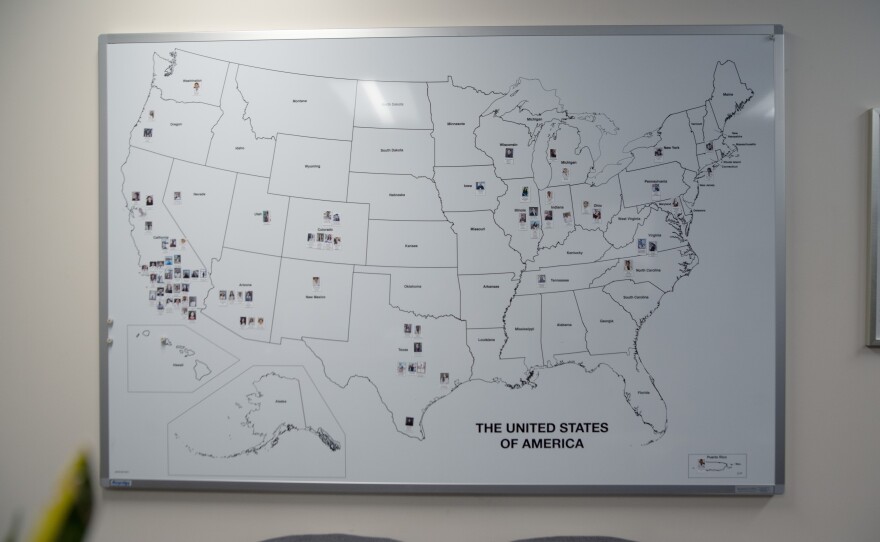The National Institutes of Health (NIH) have cut funding for workforce development programs at California State University San Marcos.
Several programs at the university’s Center for Training, Research and Educational Excellence (CTREE) are federally funded by the NIH. They include the Undergraduate Research Initiative for Scientific Enhancement, or U-RISE, which supports undergraduate students interested in pursuing a doctoral degree.
“We found out that one was cut [at] the end of March,” said Denise Garcia, a biology professor who directs the center. “Every week thereafter, we would get another termination until they all got terminated.”
Other cut programs include the Bridges to the Baccalaureate program, which prepares community college students interested in biomedical research to enter four-year universities, and the Building Early Awareness and Research in Science program, which supports undergraduates interested in bioengineering and biomedical research.
The programs offer stipends and tuition discounts. Students also conduct research and attend conferences. Those experiences set students’ applications to graduate programs apart, Garcia said.
“Our students are fabulous. They get great grades. But grades aren't enough to get into grad schools,” she said. “It really makes a difference.”
The NIH cuts meant 45 students went without pay for more than a month, Garcia said. She said most students are low income or the first in their families to go to college.

Psychology and biology student Nicholas Mendez is in the U-RISE program. He’s done research on nicotine addiction and weight loss medications, and he hopes to go into drug development.
“To not be certain about what your paycheck is going to look like and how long you'll get the stipends for is very intimidating,” he said. “We all have so much to lose and we all have so much that we want to gain.”
Mendez said the stipend allows him to focus on research, rather than an off-campus job.
“Originally I worked a restaurant job,” he said. “I wanted to be more on campus because it was easier for me to kind of stay in the groove and be more productive.”
He said it allows him to pay for things like gas, lunch and professional clothing.
“It really just gives me the freedom to be a student and a researcher without having to worry about all the little nit-picky things that I might have to budget in,” he said.
Mendez will be a senior in fall. He hopes to avoid using student loans to cover those basic expenses.
“The last thing I want to do is put myself in a big pile of debt,” he said.

The NIH told university administrators that it was terminating the programs “due to changes in NIH/[Health and Human Services] priorities.” In a notice about changes to one of the grants, the NIH wrote it would not “prioritize research programs related to Diversity, equity, and inclusion.”
“Research programs based primarily on artificial and non-scientific categories, including amorphous equity objectives, are antithetical to the scientific inquiry, do nothing to expand our knowledge of living systems, provide low returns on investment, and ultimately do not enhance health, lengthen life, or reduce illness,” the notice read.
The National Science Foundation (NSF) has also terminated funding for the Louis Stokes Alliance for Minority Participation program, which CTREE also oversees at CSU San Marcos, saying it didn’t align with its priorities.
“Awards that are not aligned with program goals or agency priorities have been terminated, including but not limited to those on diversity, equity, and inclusion (DEI), environmental justice, and misinformation/disinformation,” the NSF’s website reads.
CSU San Marcos found enough funding through grants and other sources to pay the U-RISE students’ April and May stipends. Other programs’ stipends will end after July.
Now, CTREE is asking for donations. Garcia hopes they’ll raise enough money for students who are halfway through two-year programs to finish them.





